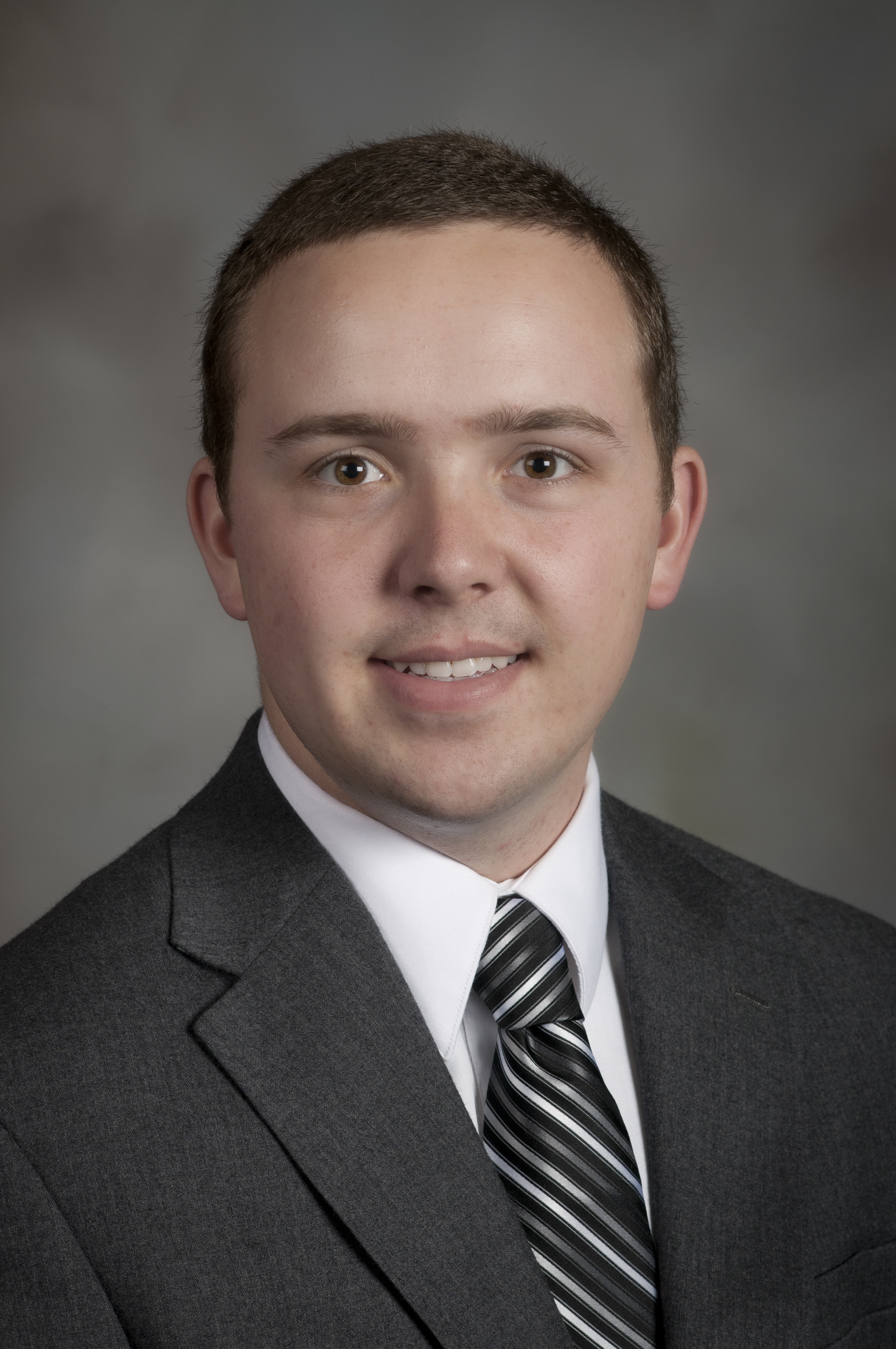Undergraduate student represents university as its first Presidential Fellow

International agriculture education may be a tool for national security, according to research by Austin Larrowe of Woodlawn, Va., a junior majoring in applied economics management and agricultural sciences in the College of Agriculture and Life Sciences at Virginia Tech.
Larrowe is one of 72 students representing 66 U.S. colleges and universities selected by the Center for the Study of the Presidency and Congress to be part of the Presidential Fellows Program for the 2012-13 academic year.
Each student has worked on an individual research project throughout the year and will turn in their completed paper in May.
Larrowe’s research focus on international agriculture education as a tool for national security stemmed out his passion for international affairs and agriculture, two seemingly disconnected topics he’s married together through the non-profit organization he started his freshman year of college – Feed by Seed. The group currently has access to 18 acres of land in a poverty-stricken area of Nicaragua. They work with two local schools, teaching vital skills to students and their families.
“Most students and their families are living on about $2 a day,” Larrowe said. “We teach them technical skills for agricultural production, so they can eat what they grow or sell it to make money. We also work with the individuals on leadership development, basic economics, and fostering a sense of hope for the future.”
Feed by Seed partners with Because We Care Ministries, which handles the day-to-day operations in Nicaragua. Larrowe got the idea for Feed by Seed while on a trip with the organization. “They handed out bags of beans and rice to people as they needed it, which is fantastic – they saved a lot of lives doing that, especially after Hurricane Mitch moved through the area,” Larrowe said. “But they realized it wasn’t sustainable. People were becoming dependent on the ministry to survive.”
Larrowe realized agriculture education could fill the void. “Our vision is to make an economically and agriculturally self-sufficient community.”
Feed by Seed and his current research endeavor through the Presidential Fellows Program developed through his time working for Future Farmers of America (FFA) and the offer for a Pamplin Scholar Award through the University Honors Program, a merit-based scholarship equal to tuition and fees for four years at Virginia Tech. As part of the scholarship, winners must take on community engagement and leadership project. Larrowe thought up Feed by Seed after returning from an FFA convention.
“I began wondering if there was some kind of organization that combined my two interests, international affairs and agriculture. That was the start of Feed by Seed which officially launched on Jan. 20, 2011.”
Larrowe grew up in a rural community, but his love of agriculture wasn’t natural at first. In high school, he signed up for an agriculture class only because he heard they would use welders and saws. When no tools appeared in the first class, he almost dropped it. “My teacher told me, ‘If you are not going to give it a chance, I’m not going to give you a chance.’ I remember that very vividly,” Larrowe said. “I went back the next day with a notebook and pen, ready to learn. I quickly realized how big of an impact agriculture makes, both domestically and internationally.”
Through FFA, Larrowe got a chance to travel to other parts of the globe. Last year, he expanded his horizons even farther as a participant of the Presidential Global Scholars program, through University Honors. “I thought I was diverse in my friend groups and considered myself somewhat interdisciplinary,” Larrowe said. “During the Presidential Global Scholars program, I realized I wasn’t even close. We pushed each other to grow.”
The program requires students to work on group research projects. Larrowe’s group researched the sex trafficking industry. While not focused on agriculture, the study has had implications for his world view, his current research project, and how he runs his non-profit.
“We are starting to focus on women and young girls with Feed by Seed,” Larrowe said. “Most of the research I’ve found in doing my Presidential Fellows Program paper is, if across the globe, women had the same access to resources in agriculture education and extension research as men do – which is not the case now in many countries – global food production could grow by 40 percent. It doesn’t only make sense from a production standpoint, but from anti-trafficking, food security, family, and community standpoints as well. Investing in women can cause a very significant power shift.”
While he still has two years left in a five-year program at Virginia Tech, Larrowe says he balances it with Feed by Seed, which has some upcoming expansion plans. Larrowe will visit the farm this summer.
“I’ve been blessed to have a supportive group of family and friends and blessed to have been able to travel, with their help,” Larrowe said. “I’ve been to 29 countries now, seeing different needs and cultures. It just fell into place that an international perspective on agriculture would come together for me.”
This summer, Larrowe will add a 30th country to his list: Ghana. He was accepted to Virginia Tech – University of Cape Coast, Ghana, Research Experience for Undergraduates, a program funded by the National Science Foundation.
Dedicated to its motto, Ut Prosim (That I May Serve), Virginia Tech takes a hands-on, engaging approach to education, preparing scholars to be leaders in their fields and communities. As the commonwealth’s most comprehensive university and its leading research institution, Virginia Tech offers 240 undergraduate and graduate degree programs to more than 31,000 students and manages a research portfolio of $513 million. The university fulfills its land-grant mission of transforming knowledge to practice through technological leadership and by fueling economic growth and job creation locally, regionally, and across Virginia.




